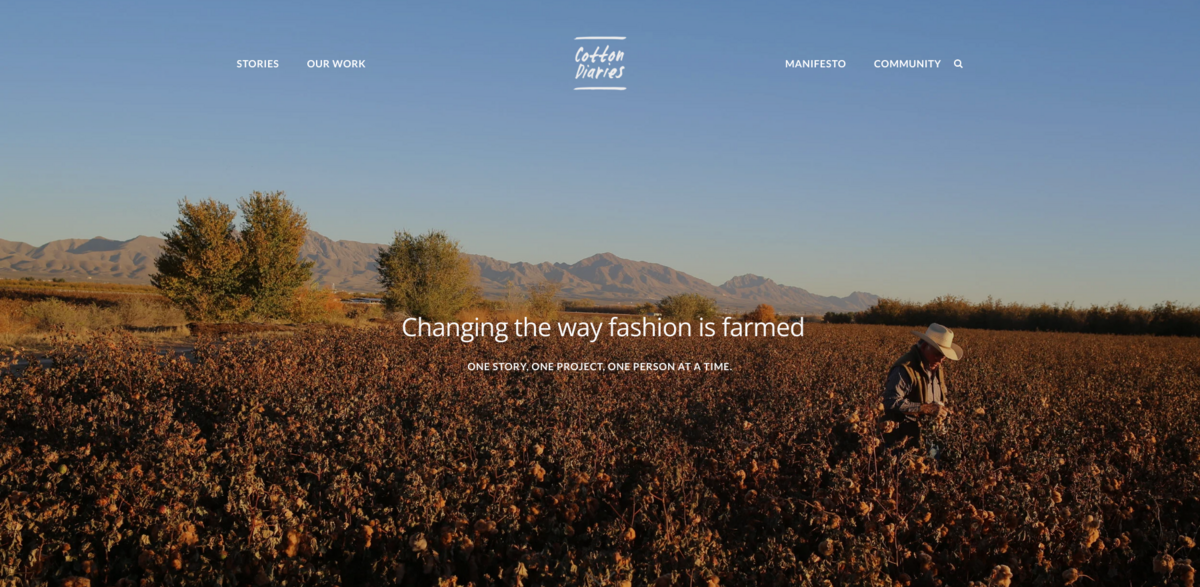What is the Cotton Diaries Project?
Cotton Diaries is all about futureproofing fashion – from crop to cloth. It’s a bold initiative that helps anyone working with cotton — whether apparel and textile companies, non-profits, or farmers — to research, implement, and communicate solutions tackling the most pressing social and environmental issues in cotton. The cotton industry? Yeah, it can be thirsty, toxic, exploitative… but Cotton Diaries believes there are better ways to do it. And they’re out there, waiting to be discovered and shared.
Main Benefits of Cotton Diaries
Here’s what makes this project stand out:
- #99Seeds – a short video series showcasing farmers, activists, and community leaders in Brazil transforming cotton farming through family and community-based initiatives, agroforestry, and organic farming.
- Seed2Shirt – founded by Tameka Peoples to bring production back to communities of color, focusing on restorative relationships with the land and people.
- West Africa Organic & Fairtrade Cotton Coalition (CCBE) – led by Tobias Meier, aiming to upskill farmers and boost organic cotton production in Burkina Faso, Mali, Senegal, and Benin.
- Blueprint Farms – Aniruddha Patil’s organic farm, converted over 20 years ago, serving as inspiration for others to follow.
- Corporate Support – Lavinia Muth from Armedangels helps small-scale farmers transition to organic practices, emphasizing people and systems over technology.
- Visual Storytelling – Uwe H. Martin’s multimedia documentary project White Gold explores the human and environmental impacts of global cotton production.
- Traditional Practices – Nishanth from the Nistanth-Oshadi Collective returns to traditional methods to combat pollution and waste in Tamil Nadu’s textile towns.
- Innovative Solutions – Dipak Mahato in North Carolina has developed a revolutionary water purification system that could solve the fashion industry’s water problems.
Exploring #99Seeds: Stories from Brazil
The #99Seeds video series dives deep into the lives of those changing cotton farming in Brazil. It’s not just about cotton; it’s about family, community, and nature working together. From agroforestry to organic farming, the series highlights how intercropping, reforestation, and seed saving are powerful tools for sustainable cotton. These stories show that small-scale, family-based farming can be a game-changer in a world dominated by industrial agriculture.
Seed2Shirt: Restoring Roots and Relationships
Tameka Peoples’ Seed2Shirt is more than a brand — it’s a movement. She’s all about bringing cotton production back to communities of color, making sure every step in the cotton value chain is rooted in restoration and healing. As Tameka puts it, “My work for Seed2Shirt is about restoration, reclamation, the healing of us in this space, and our connection with this commodity.” It’s a powerful reminder that cotton isn’t just a crop; it’s a connection to land, culture, and identity.
Organic Cotton in West Africa and Beyond
Tobias Meier and the West Africa Organic & Fairtrade Cotton Coalition (CCBE) are on a mission to upskill farmers and increase organic cotton production across Burkina Faso, Mali, Senegal, and Benin. Their approach? Collaboration and partnerships that empower farmers and promote sustainable practices. Meanwhile, Lavinia Muth from Armedangels supports small-scale farmers transitioning to organic methods, emphasizing that “it’s not technology which will save us, it’s people and systems.” Together, these efforts are reshaping cotton farming in West Africa and setting new standards for fair fashion.
Impact of Cotton Diaries on Sustainable Development Goals (SDGs)
- SDG 1: No Poverty – empowering small-scale farmers and communities.
- SDG 2: Zero Hunger – promoting sustainable agriculture and food security.
- SDG 6: Clean Water and Sanitation – innovative water purification solutions.
- SDG 8: Decent Work and Economic Growth – fair trade and upskilling farmers.
- SDG 12: Responsible Consumption and Production – sustainable cotton practices.
- SDG 13: Climate Action – reforestation and organic farming reducing environmental impact.
- SDG 15: Life on Land – preserving ecosystems through agroforestry and seed saving.
Visual Storytelling and Traditional Wisdom
Uwe H. Martin’s White Gold project uses powerful images to open doors into the realities of global cotton production — places and stories most people don’t usually see. His camera acts like a passport, capturing moments that educate and inspire. Meanwhile, Nishanth from Tamil Nadu is turning back to traditional practices to fight pollution and waste caused by textile factories. His work reminds us that sometimes, the best solutions come from looking back and honoring the wisdom of the past.






















